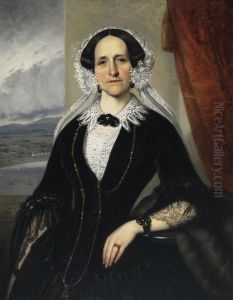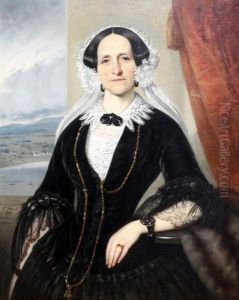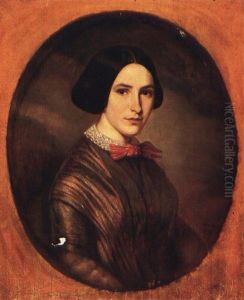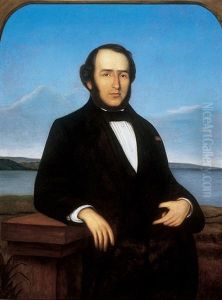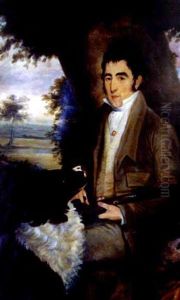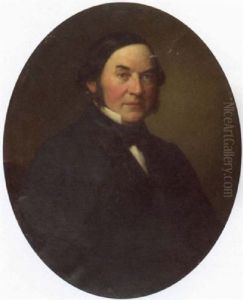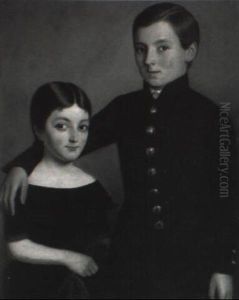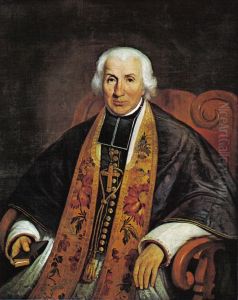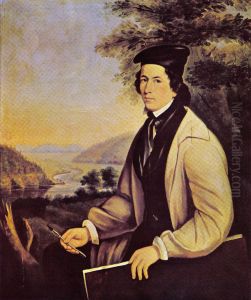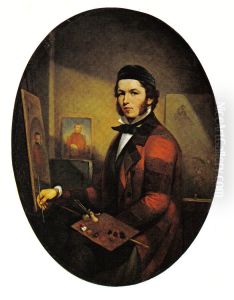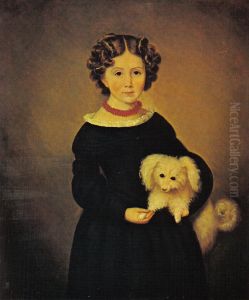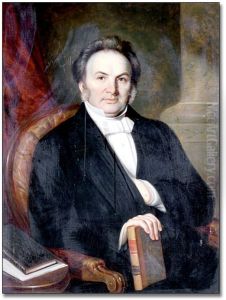Theophile Hamel Paintings
Théophile Hamel was a prominent Canadian artist known for his portraiture and religious paintings. Born on November 8, 1817, in Sainte-Foy (now part of Quebec City), Quebec, Canada, Hamel was a key figure in the development of early Canadian art and is often considered one of the country's first professional artists.
Hamel was the son of a carpenter and developed an interest in art at an early age. He began his artistic training under the tutelage of Antoine Plamondon, a leading artist of the time. In 1838, Hamel went to Paris to further his studies, where he was exposed to the works of European masters, which greatly influenced his style. He studied at the Académie royale de peinture et de sculpture and the studio of Léon Cogniet.
Upon his return to Canada in 1841, Hamel quickly established himself as a portraitist. He traveled extensively throughout Quebec, painting portraits of numerous prominent figures, including religious leaders, politicians, and businessmen. These works are notable for their detailed representation and are valuable records of Canadian society in the mid-19th century.
In addition to portraiture, Hamel produced a significant number of religious works, many of which are found in churches throughout Quebec. His religious paintings reflect an adherence to the academic style of his era, characterized by a clear narrative, precise drawing, and careful attention to detail.
Hamel's career was marked not only by his artistic output but also by his efforts to cultivate an appreciation for the arts in Canada. He served as an art advisor to the government, recommending the purchase of European artworks, and he played a role in the establishment of art collections and exhibitions in the country.
Théophile Hamel passed away on December 27, 1870, in Quebec City. His works remain an integral part of Canada's cultural heritage and continue to be exhibited in galleries and museums. Hamel's legacy is one of professionalism and dedication to the arts, and he paved the way for future generations of Canadian artists.
